India-Canada diplomatic ties hit rock bottom over separatist Sikh leader’s killing
By Mehdi Moosvi
Relations between India and Canada have dramatically nosedived in recent weeks with both sides expelling diplomats amid a row over the killing of a separatist Sikh leader.
The latest escalation was triggered by the killing of Canadian Sikh leader Hardeep Singh Nijjar outside a Sikh temple in British Columbia in June, which Canada blamed on India.
Canadian Prime Minister Justin Trudeau claimed that his government was investigating “credible allegations of a potential link” between Indian agents and the murder of Nijjar, prompting strong reactions from New Delhi.
Indian government dismissed the accusations as “absurd” and urged the Canadian authorities to crack down on the activities of individuals it calls “terrorists”, a reference to Sikh separatists.
Nijjar, a prominent separatist Sikh leader in Canada, was reportedly a proponent of an independent Sikh state in India and often took part in protests in Canada.
Nijjar’s murder and escalation of tensions
On the evening of June 18th, Nijjar, the chief of the Khalistan Tiger Force (KTF), was sitting in his vehicle in a parking lot outside a gurdwara (a Sikh temple) in Surrey, British Columbia, when he was shot dead by two masked men, who ran across a park and then vanished.
In India, he was a wanted terrorist and carried a cash bounty of a million Indian Rupees on his head.
The Khalistan movement is a Sikh separatist movement that seeks to create a sovereign state for Sikhs in the Punjab region of India and Pakistan.
The diplomatic row between the two former British colonies intensified on September 19 when Ottawa expelled the head of the Indian intelligence in Canada, Pavan Kumar Rai, who was accused of either ordering or assigning someone to kill Nijjar.
Qamar Agha, a New Delhi-based security and diplomatic analyst, in a telephonic interview with the Press TV website, called Quebec’s accusations against Rai “very serious.”
“This is a major tussle or tip-off between India and Canada. India believes he (Rai) became a victim, and he was forced to go back to his country, which is unacceptable to India,” Agha said.
Hours later, in a retaliatory move, India also expelled a Canadian diplomat and dismissed Trudeau's claims of India’s involvement in the shooting as “absurd” and “baseless”, and challenged him to submit proof of New Delhi’s involvement.
New Delhi said, “allegations (leveled by Trudeau) seek to shift the focus from Khalistani terrorists and extremists, who have been provided shelter in Canada.”
India on September 21, went a step ahead and decided to suspend visa applications for Canadians, citing security threats against its diplomatic staff and “inaction by the Canadian authorities”, and also issued a travel advisory for Indians to “exercise extreme caution” in Canada due to "growing anti-India activities and politically condoned hate crimes".
Trudeau later said he shared with India the evidence of its involvement in the killing of Nijjer “many weeks ago”, and urged New Delhi to “engage” with Ottawa to “get to the bottom” of the issue.
Agha believes that Ottawa’s recurring requests to work with the Indian government on the issue and claims of sharing the evidence with the government of India are a hoax.
“If he really wanted to have better ties with India, he would have contacted the government of India and provided some proof of the involvement of an Indian diplomat. He has not done anything like that,” Agha told the Press TV website.
“First he (Trudeau) expelled an Indian diplomat and now he is talking about his intention of having good ties with India, this does not work in international relations.”
Claims and counter-claims
India’s Ministry of External Affairs (MEA) rejected Trudeau’s claim, saying, “No specific information has been shared by Canada on this case, either then or before or after.”
Indian Prime Minister Narendra Modi, who refused to have a one-on-one meeting with his Canadian counterpart on the sidelines of the G20 summit in New Delhi, has maintained silence on the issue.
Saeed Naqvi, a senior Indian journalist and international affairs commentator, in an interview with the Press TV website, said Trudeau would not have made these allegations against New Delhi without reaching out to “Indian intelligence.”
“Trudeau cannot make this statement without asking the Indian intelligence who must be present in Canada, there would be a person in the embassy who belongs to the R&AW (Indian intelligence agency) or who belongs to the intelligence bureau,” Naqvi said.
Agha, however, affirmed that India believes that there are internal rivalries within the Khalistani movement, so some of them must have been involved in the killing of Nijjar.
Trudeau’s government has faced intense scrutiny with the Modi government mounting pressure on it to produce evidence of Indian involvement in the Sikh separatist leader’s killing.
Both Naqvi and Agha believe that the motive behind Trudeau’s allegations against India is mostly to please the Canadian Sikh community and to save his coalition government.
“Trudeau runs a minority government, in which he needs the support of his Sikh constituents who happened to be in his cabinet also,” Naqvi said in a conversation with the Press TV website.
“It is possible that he is taking this aggressive stand, even risking his friendship with India, because of the stability of his coalition in Canada,” he added.
Agha said the Canadian premier has “aligned himself with the Khalistani community in Canada, which is a very wealthy community and has also been a major funder of his election campaigns in the past.”
Trudeau has yet to provide substantial evidence that proves the involvement of an Indian agent in the killing of Nijjer.
United States of (Accusations)
The tables turned after the US ambassador to Canada David Cohen confirmed on Saturday that "shared intelligence among Five Eyes (FVEY) partners" had informed Trudeau of the possible involvement of Indian agents in the murder, and that “there was a lot of communication between Canada and the US about this.”
On Sunday, an article in the New York Times confirmed US involvement in sharing intelligence with Canada in the aftermath of the killing, saying “American spy agencies provided information to Ottawa after the killing of a Sikh separatist leader”.
The article also talked about Canadian intentions, as it only focused on the intelligence report, where the finger was pointed toward India.
“Canada developed the most definitive intelligence that led it to accuse India of orchestrating the plot,” the report stated, however, the precise nature of that intelligence remains unknown.
According to Canadian media, Ottawa’s allegations are based on both human and signals intelligence and inputs from an ally of the FVEY intelligence network, which comprises intelligence sharing between the US, Canada, United Kingdom, Australia, and New Zealand, making it the largest intelligence-gathering organization in the world.
Naqvi pointed to two possible scenarios that would have occurred with Trudeau and his government.
“These Anglo-Saxon countries share their intelligence on major issues. Now, has Trudeau shared his intelligence? Either he has jumped the gun and made allegations without any input from the other four countries, then it is extremely irresponsible of him,” Naqvi stated.
“If he has consulted the rest of the four countries, and their intelligence agencies have encouraged him towards this line of thinking, that is altogether another matter.”
He also referred to US involvement in the dispute and its taking sides with Canada.
“It is noticeable that the most important lynchpin of all of this should be the US. There should have been some endorsement or some sympathy for Trudeau’s view in Washington, but Biden is coming to India on the 26th January as the chief guest,” Naqvi said while talking about Modi’s invitation to Biden to be the chief guest at India’s Republic Day ceremony next year.
“So, in other words, either he supports Trudeau, in which case he should be able to tell Modi what is happening, or Modi, despite having this knowledge of what is happening has invited him to be the chief guest,” he said in an interview with the Press TV website.
According to experts, the probability that Washington will support Ottawa, is very high, which will eventually make New Delhi question its friendship with Washington.
Nijjer’s killing and India’s ties with Anglo-Saxons
On the involvement of Anglo-Saxon countries in the India-Canada diplomatic row, Agha said it is not going to influence relations between the two sides, as the Anglo-Saxon bloc considers India as the only country that can counter the growing Chinese influence in the region.
He said there is duality in the behavior and policies of Anglo-Saxon countries, as they prioritize their “interests.”
“We have seen in the past, they (Western governments) talk of peace but wage wars” and support “terrorist groups”, Agha noted, adding that “all the wars they've fought in the name of peace, they’ve destroyed numbers of countries to establish peace in these countries.”
“In the case of Canada, they are talking about peace, prosperity, development, promotion of culture among nations, and they say they are committed towards international norms, but on the other hand, you will see most of them having links with some or the other militant groups.”
Saurabh Kumar Shahi, a New Delhi-based journalist and foreign affairs analyst, said the ruling Democratic party in the US is a “Hindutva occupied territory”, whose intelligence takes the matter of the breach of sovereignty seriously, the reason being the US has come out as “Janus-Faced” on this issue.
The US has called on both Canada and India to uncover the full truth but has failed to confront New Delhi.
“Washington also doesn’t want to upset the current government in New Delhi too much, lest it abandons its role as the US' rottweiler vis-à-vis China,” Shahi told the Press TV website.
“While Canada or the US would normally not give two hoots about New Delhi's treatment of its minorities, given that they need India in their containment policy for China; they can't let the fact slide that their sovereignty was breached in a way that even Zionists are smart enough not to do,” he said, pointing to India’s involvement in Nijjar’s killing.
India also referred to what it called “specific evidence” about “criminal activities” by Indian separatists based in Canada, saying the evidence has been shared with Ottawa.
Naqvi said if Trudeau has jumped the gun and not consulted his other four Five Eyes colleagues, including their intelligence agencies, it is going to affect the ties very badly.
“The relations are already at rock bottom. No government in New Delhi can live with the allegations Trudeau has made, nor can Trudeau live with absolute incontrovertible knowledge that Indian intelligence agencies have been assassinating Canadian citizens on its soil,” he told the Press TV website.
“So both have desirable reconcile positions, I think the only way they can reconcile is through diplomacy, the fact that some give and take is required.”
Khalistani movement and its genesis
The Khalistan movement emerged in the 1930s in northern India’s Punjab province and gained momentum in the 1970s and 1980s when Sikhs faced discrimination and violence from the Indian government and Hindu majority.
The movement reached its peak in 1984 after the Indian army in a controversial move stormed the Golden Temple, the holiest shrine of Sikhs in Punjab, to flush out militants.
The operation sparked widespread protests and violence and led to the assassination of then- Indian Prime Minister Indira Gandhi by her Sikh bodyguards.
“It is a very sensitive matter and it has its echoes. We have lived through a very tragic period in the 80s and the 90s, we had a Prime Minister assassinated because of this issue, and its revival would be in the interest of nobody,” Naqvi remarked.
Canada emerged as one of the main destinations for Sikh refugees who migrated after the 1984 anti-Sikh riots in India to seek asylum and flee the violence.
Some of them also brought with them their political and religious ideologies and grievances and supported the Khalistan cause from abroad.
The movement declined in the 1990s, due to heavy crackdowns, internal divisions, and loss of support from the Sikh population, until it re-emerged in the 21st century as some groups still advocate for Khalistan, especially among the Sikh diaspora in Canada, the UK etc..
“These fringe groups do not disappear, they are always there in all political formations. It sometimes gets publicity out of proportion with its actual strength,” Naqvi said.
According to Agha, the Khalistan issue is still alive in Punjab as a fraction of the Sikh population demands a separate state, the reason being that some Punjabis “have deep sub-regional nationalism”, but a large majority of them don't want Khalistan, they want to live with India.
“Ever since Trudeau came to power, the problem between India and Canada is growing day by day,” Agha said, speaking about the support his government enjoys from Khalistanis.
He also believes that as long as Trudeau remains in the prime minister’s office, the possibility of relations between Canada and India improving is very slim.
Shahi believes that the India-Canada episode would be one of the reasons for Modi’s win in next year’s election, as it will convince voters that Modi subdued a threat to India in a foreign land.
“If anything, this will help Modi in further enhancing his image as an ‘Iron Man’ among his voters. His voters are not exactly the bright bulbs anyway,” Shahi asserted.
VIDEO | Yemen; a bone in Israeli neck
D-8’s role in Iran’s economy after Cairo summit
China slams US as ‘war-addicted’ threat to global security
China ‘firmly opposes’ US military aid to Taiwan
VIDEO | Press TV's News Headlines
President Yoon Suk Yeol to be removed from office
At least 19 Gazans killed by Israeli airstrikes since dawn: Medics
Leader: Iran neither has nor needs proxy forces


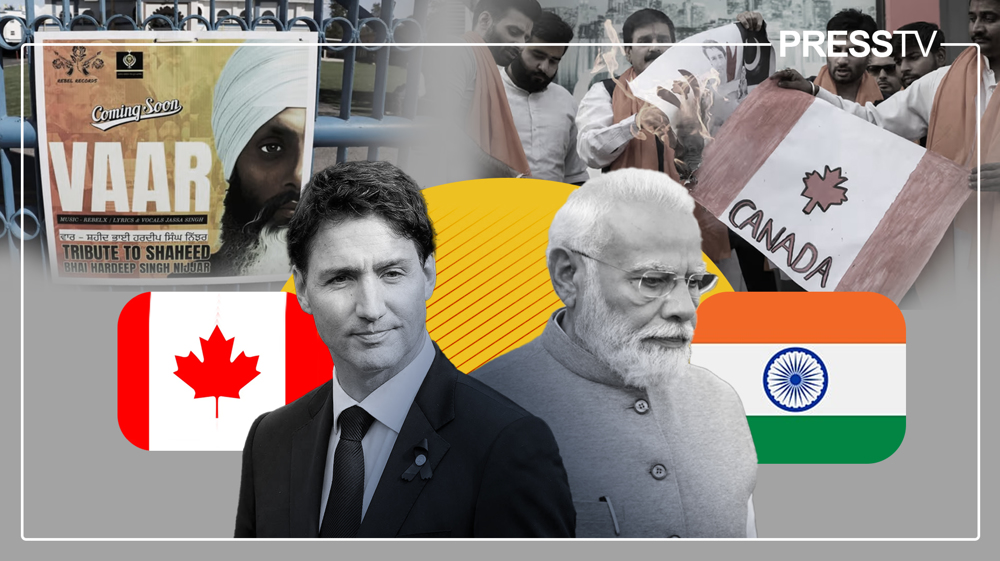
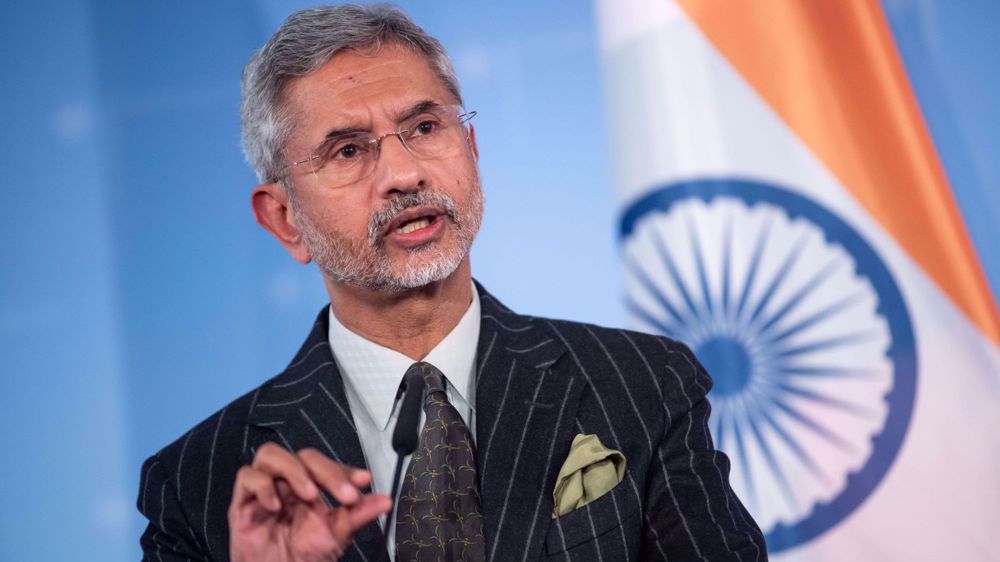
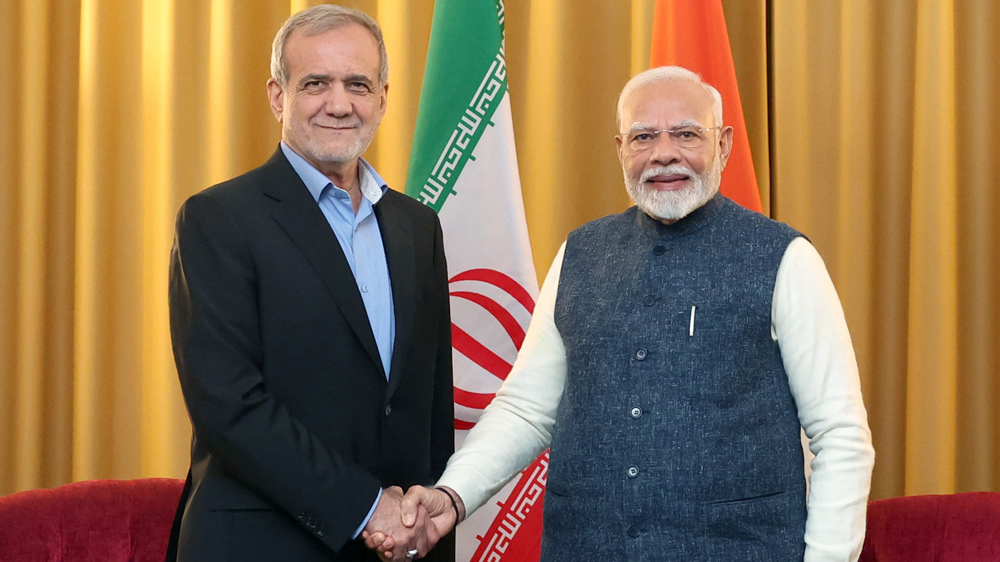




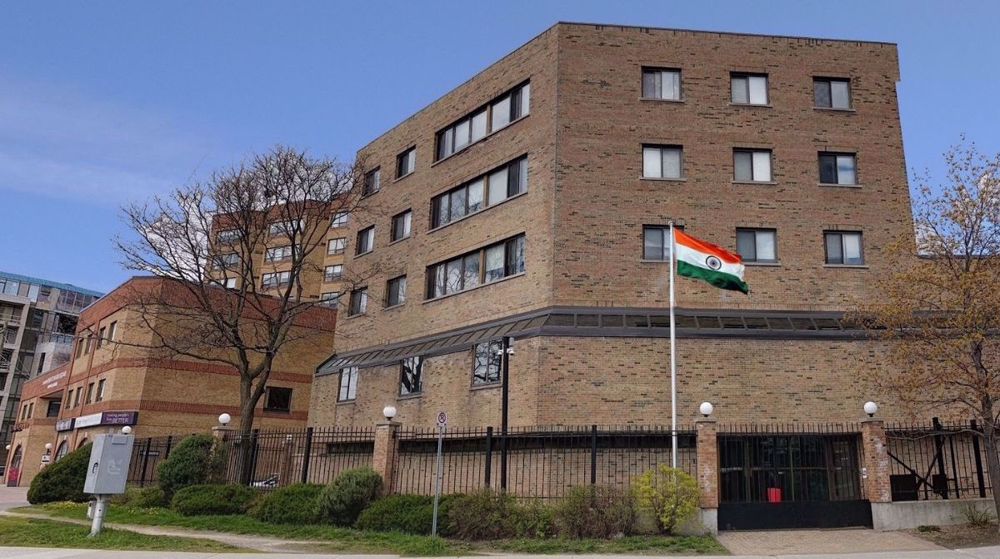
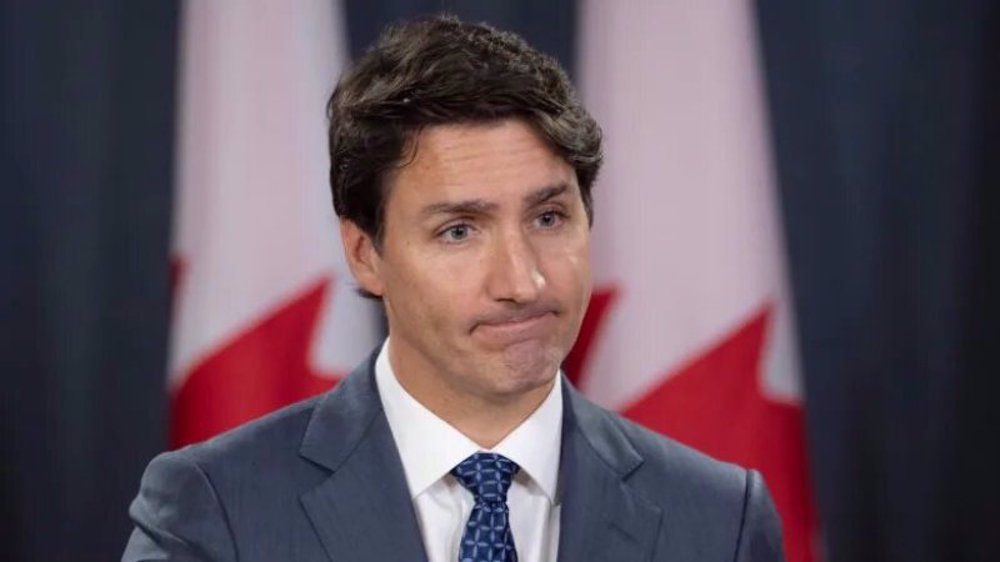
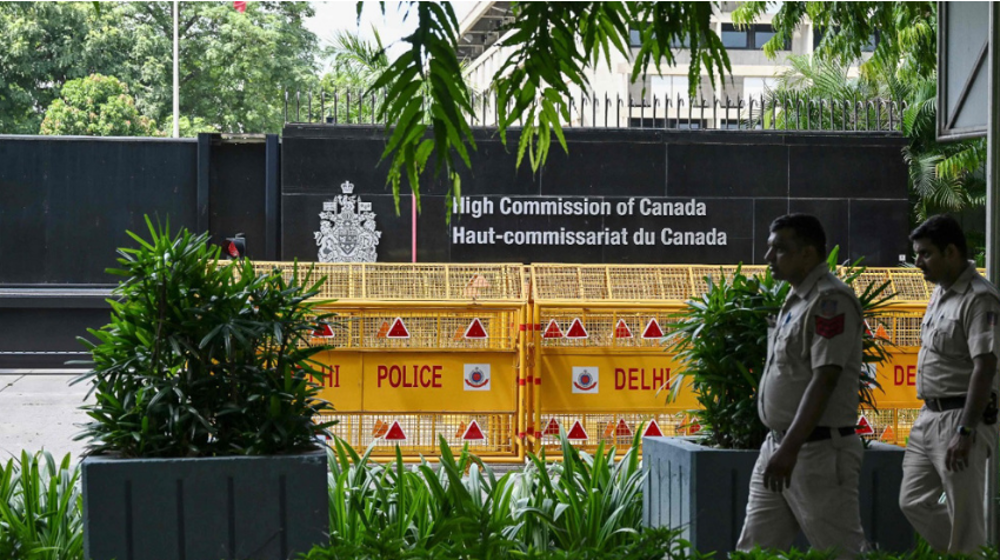
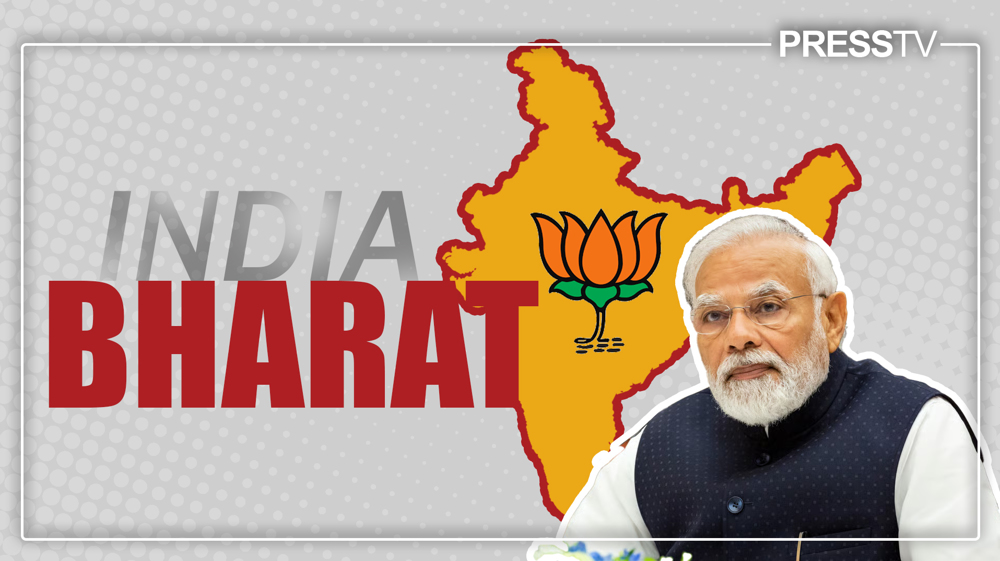
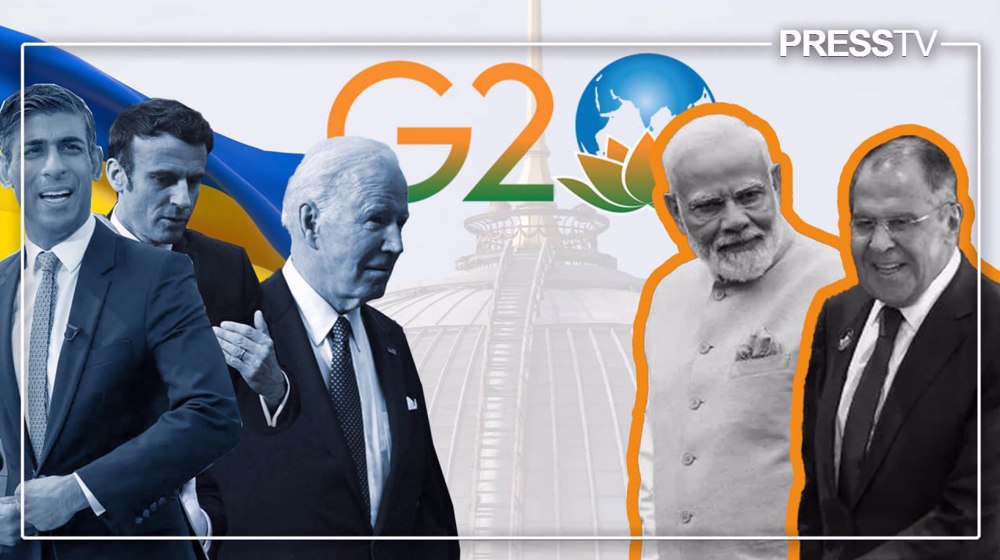

 This makes it easy to access the Press TV website
This makes it easy to access the Press TV website